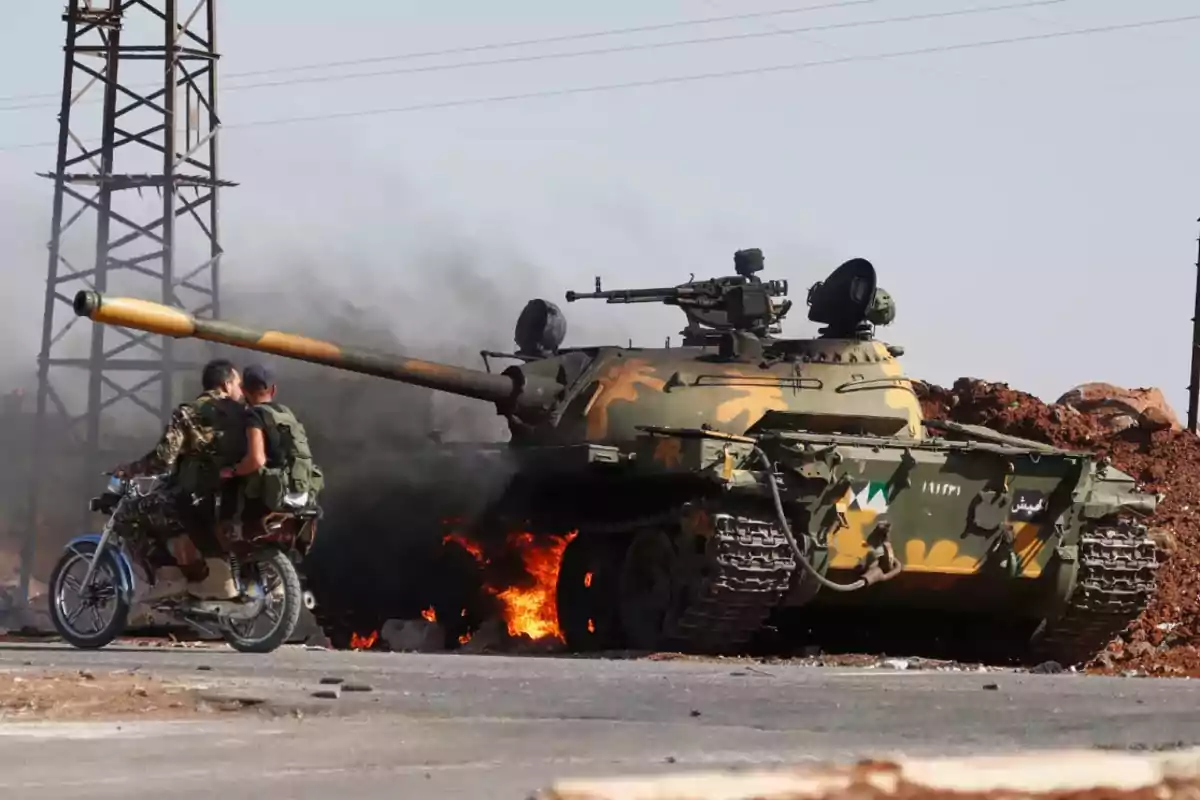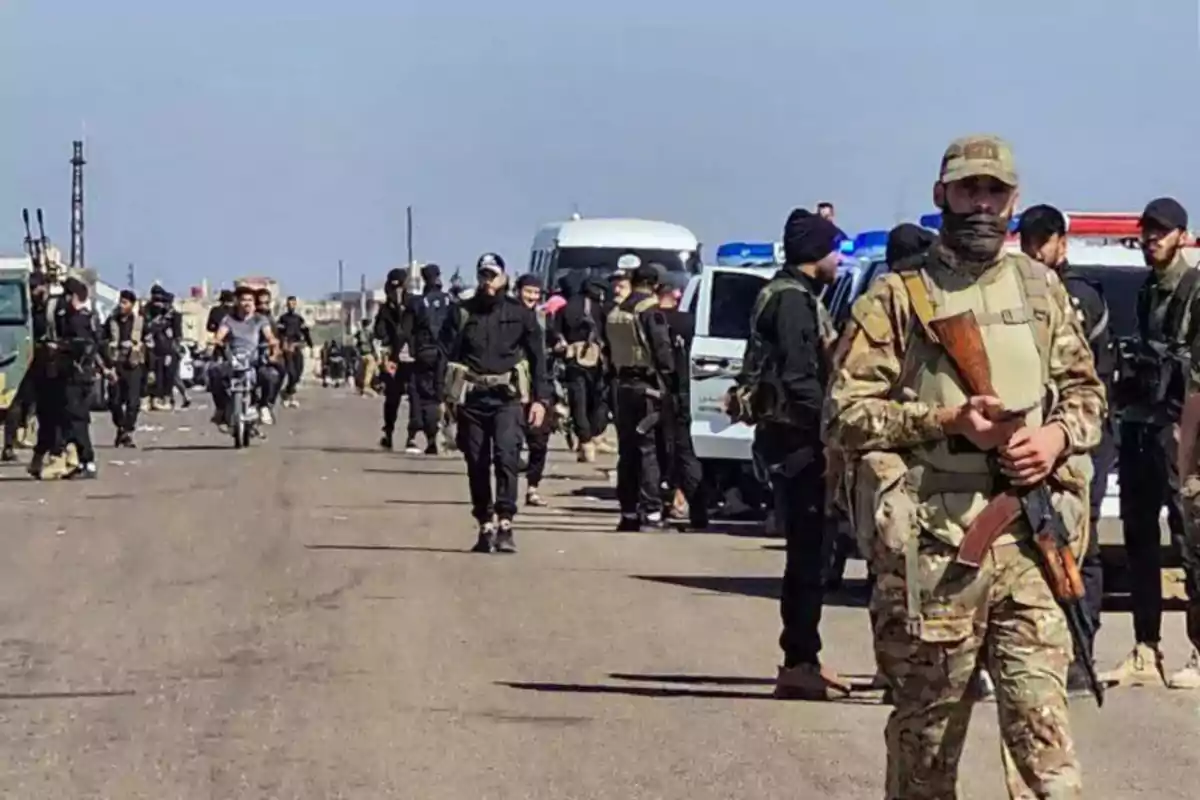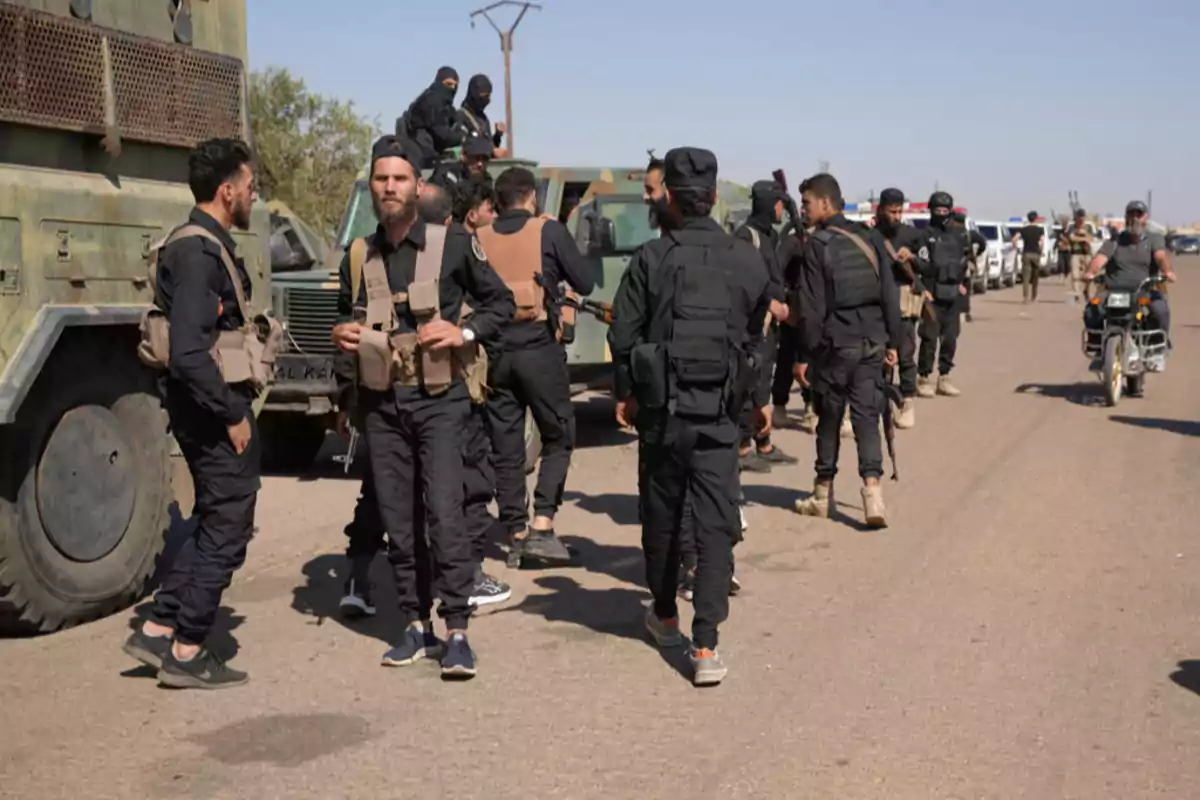
Serious clashes between Druze, Bedouins, and the Syrian regime in the south of the country
A dispute between communities led to armed clashes that have already caused more than 100 deaths
A new wave of violence shakes southern Syria following the outbreak of armed clashes between Druze militias, Bedouin tribes, and the Syrian Army in Suwayda province, which has reignited old sectarian tensions and sparked growing international concern.
The conflict erupted on Sunday, July 13, after the attack on a Druze merchant by a group of armed Bedouins who set up an illegal checkpoint on a route connecting Suwayda with Damascus.
The situation quickly escalated into armed clashes, ambushes, and cross-kidnappings between both sides. According to data from the Syrian Observatory for Human Rights (SOHR), the clashes left at least 99 dead and more than 200 injured.

The intervention of the Syrian regime
The interim Syrian government, led by Ahmed al-Sharaa, deployed troops in Suwayda on July 14 in an attempt to restore order. However, the Druze militias, distrustful of Damascus's intentions, accused government forces of collaborating with the Bedouin tribes, which led to armed clashes between the Syrian Army and the Druze.
Meanwhile, the Syrian Ministry of Interior attributed the outbreak to the "absence of state and security institutions" in the region.
As a result of these ongoing clashes, dozens of civilians have been injured, and significant material damage has been reported due to crossfire and artillery in residential areas. In addition, videos circulated on social media showing some members of the new Syrian Army, belonging to Islamic extremist groups, attacking the local Druze population.
The intervention of Israel
In parallel, Israel intervened with airstrikes targeting tanks and military convoys of the Syrian regime heading toward Suwayda. Israeli Defense Minister Israel Katz justified the operations as an act of protection for the Druze community, which has strong ties with Israel due to its presence in the Golan Heights.

Within the Druze community itself, reactions to Damascus's intervention were divided. Influential sheikh Hikmat al-Hijri described the attacks as part of a "genocidal campaign" and called for the intervention of international organizations, denouncing al-Sharaa's complicity with extremist groups.
Other leaders, however, called for moderation and agreed to negotiate a ceasefire with Damascus's forces, requesting the disarmament of local militias to facilitate dialogue with the regime.
On the night of July 14, negotiations began between Syrian authorities, local leaders, and representatives of the Men of Dignity Movement to reach a ceasefire. Although dialogue continues, tension remains high in the streets.
From Washington, the U.S. special envoy for Syria, Tom Barrack, expressed his "deep concern" over the events in Suwayda and assured that the United States is "actively engaged with all parties in Syria to navigate toward calm and productive integration discussions."
Barrack urged a peaceful and inclusive solution that considers the rights of Druze, Bedouins, and other communities affected by the violence. In recent hours, the United States has also asked Israel to halt attacks against the Syrian Army.
Suwayda province, with a Druze majority, has historically been a region with a strong local identity and autonomy. Since the fall of Bashar al-Assad's regime in December 2024, armed Druze groups such as the Suwayda Military Council have increased their influence, resisting full reintegration with the new government.
More posts: